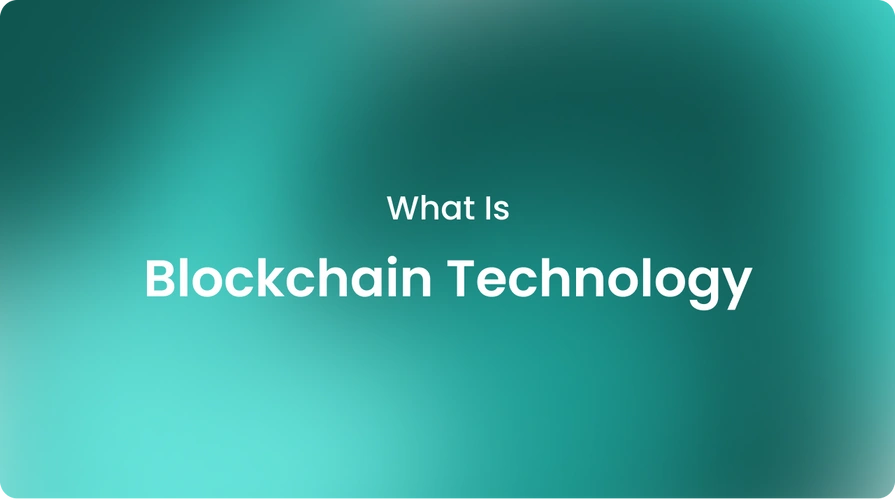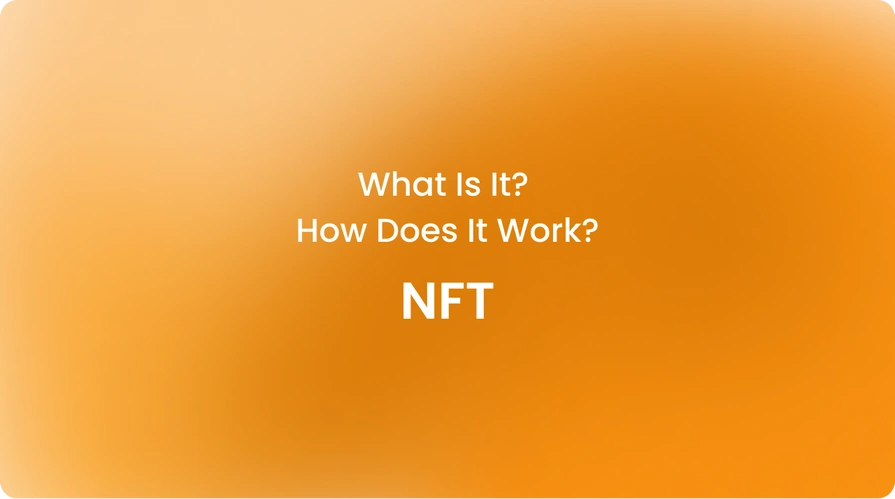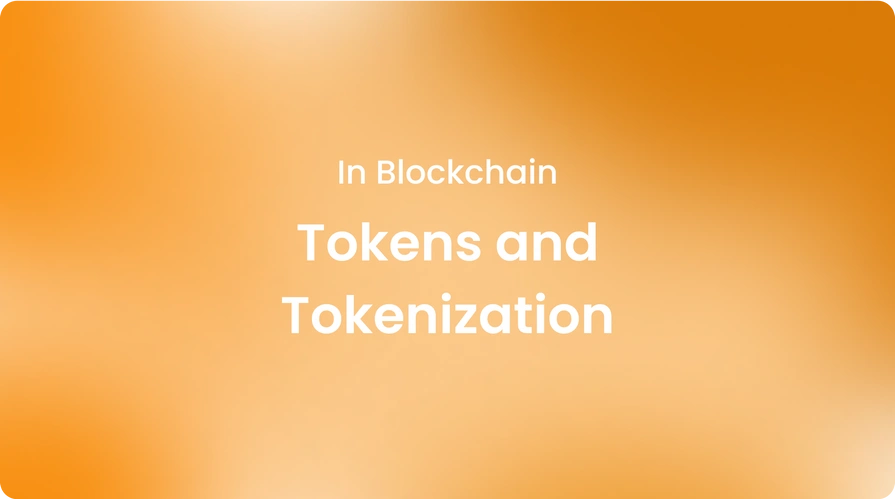|technology, knowledgehub
Blockchain Gaming: A Complete Guide

The integration of blockchain gaming with blockchain technology into gaming is opening up exciting new opportunities and ushering in a new era of play-to-earn games.
In this comprehensive guide, we'll explore how blockchain is revolutionizing the gaming industry, explain key concepts like gaming tokens and NFT, and examine both the pros and cons of this burgeoning space.
By the end, you'll have a solid understanding of what blockchain gaming is all about and why some believe it represents the future of the entire industry. Now, let's begin!
How is blockchain used in gaming?
Blockchain provides the foundation for several innovative applications in gaming. It enables secure tracking and verification of in-game items, currencies, and achievements outside of any single company's servers, thanks to its immutable and decentralized ledger.
This gives players true ownership over their digital assets, rather than ownership existing at the whim of the game developers. It also provides more freedom for the users.
Additionally, blockchains enable the creation of smart contracts, allowing developers to program certain conditions and rules into games. For example, a smart contract could determine the criteria needed to unlock rare items or dictate how currencies are exchanged between players.
What is a gaming token?
Many blockchain games issue their own digital tokens to power in-game economies and unlock utility. These gaming tokens, such as those issued to Ronin by Axie Infinity, can be used, earned, or purchased by players in order to advance in the game.
Depending on the game's design, crypto tokens may be used to breed virtual creatures or characters, participate in gameplay challenges, or acquire unique items and assets.
Players can also withdraw or spend the tokens on branded merchandise. By creating an internal cycle of gameplay and token circulation, these gaming tokens seek to build lively in-game economies.
What are the pros and cons of blockchain gaming?
Now that we have a sense of how blockchain enhances games, it's worth taking an objective look at both sides of the coin:
Pros of blockchain gaming
- Digital items have increased ownership and liquidity
- Play-to-earn generates new revenue streams for players
- Global, interoperable gaming economies at scale
- More innovative game mechanics and models
- Immutable transaction records defend against cheating
Cons of blockchain gaming
- A steep learning curve for new users to handle cryptocurrencies
- There is regulatory uncertainty surrounding certain elements, such as securities
- Technical challenges, such as high gas fees and scalability issues
- Centralized exploitive mechanics could still corrupt decentralized titles
- Large upfront resource costs for blockchain development
In the long run, the pros are likely to outweigh the cons as blockchain technology advances. However, there are also challenges to be overcome in the present as well.
As the technology progresses, many pros are also likely to outweigh the cons for those willing to engage with this new gaming frontier, where Cryptobunq is a one-stop-shop crypto service provider offering integration support and secure crypto services.
You can easily integrate CBQ solutions into your business, from the crypto exchange API to crypto checkout and invoicing, batch crypto payments, and tokenization.
Additionally, you can use secure crypto and blockchain services, to leverage your business. Make sure to explore our case studies to learn more about our services.
What is the difference between blockchain gaming and crypto gaming?
While often used interchangeably, blockchain gaming and crypto gaming do have subtle differences:
- Blockchain for gaming broadly refers to any game that leverages the blockchain and its key capabilities to enhance the player experience. This could simply involve transparent transactions versus crypto gaming, which integrates cryptocurrencies more deeply.
- Crypto gaming, meanwhile, builds upon blockchain functionality by heavily featuring cryptocurrencies as a core gameplay mechanic. It focuses more on the “play-to-earn” model, where players can earn crypto tokens or rewards just for playing the game.
All crypto games are blockchain games, but not all blockchain games monetize playtime with cryptocurrency like crypto games do. The latter tends to be more economically centered around tokens, whereas blockchain games lean more towards immersive experiences.
How do crypto games work?
Now let's explore in a bit more detail how crypto games operate their play-to-earn model:
- Games issue their own native ERC20 tokens, like Gods Unchained's GODS.
- To earn these tokens, players must complete challenges, conquer levels, participate in the economy, and so on.
- Rewards are distributed on a proof-of-play basis; the more you engage, the more crypto you earn just for having fun.
- Users can turn their earnings into money by listing tokens on exchanges that trade cryptocurrencies.
- Crypto tokens may hold value long-term if the game retains a dedicated community and liquid markets.
- Players can unlock additional content or features by owning a certain amount of in-game currency.
- This model turns gameplay from a time sink into a potential source of additional income.
- Developers also receive payment because their crypto tokens hold value against real-world fiat currencies.
As you can see, this is an elegant new paradigm that turns play into provisional work—a true realization of the play-to-earn dream.
How are NFTs related to gaming?
Non-fungible tokens are also revolutionizing in-game economies and item ownership models.
Here are a few examples:
Collectible and cosmetic NFTs
Limited-edition player avatars, weapons, gear, and other cosmetics are issued as verifiable scarce NFTs in games.
Verifiable achievements or rankings
Major milestones can produce NFT trophies for permanent display on profiles.
Lending/renting
NFTs representing in-game assets can be lent or rented out for a fee, much like real items.
Interoperability
NFTs aren't locked to one game and can be displayed across titles, virtual worlds, and platforms.
Real-world incentives
Top NFT collectors may receive rewards from developers, such as early access or signed swag.
Blockchain and NFTs have breathed new life into virtual itemization. Collectibles that were once worthless now have real utility and monetary value—a true paradigm shift for the industry.
Is blockchain the future of gaming?
The gaming market is larger than movies and music combined, with more than 2.5 billion gamers worldwide. According to research firm Newzoo, it's growing exponentially every year and is expected to reach $268.8 billion by 2025.
Considering how well-suited blockchain is to solving industry problems around economies of scale, data integrity, and transactional transparency, there's certainly a case to be made that it will play a leading role in powering this multibillion-dollar sector of the future.
- Mature blockchain networks already support millions of daily users, showcasing their capability for widespread mainstream adoption.
- Young gamers growing up as digital natives will push for further decentralization and personal ownership rights over virtual items.
- Play-to-earn games are paving the way for entirely new career paths, sustaining thousands of professional crypto gamers worldwide.
- Social impact games demonstrate how the space can drive positive social change through incentives.
- Enterprises are increasingly open to integration, partnership, and investment potential.
While obstacles remain, most experts agree blockchain will be the dominant technology underpinning virtual economies in the next decade and beyond. The influx of serious crypto investment and talent into the space also reflects its long-term staying power.
Blockchain provides solutions to the challenges that currently limit gaming's potential. Its future in the industry seems all but assured, as it serves as a foundational pillar supporting the next generation of digital play.
How big is the blockchain gaming industry?
By all accounts, the opportunity in blockchain gaming is massive and still in the early stages of massive growth:
- The global gaming market was worth $151.55 billion in 2019 and is projected to reach $268.8 billion by 2025.
- Annual blockchain game sales topped $1 billion globally for the first time in 2021, according to DappRadar, with over 1 million monthly active crypto wallets.
- According to a study conducted by MarketsandMarkets, the overall blockchain gaming market is projected to reach $8.6 billion by 2027, with a compound annual growth rate (CAGR) of 55%.
- At their peak, major games like Axie Infinity had over $4 billion in all-time trade volume and hundreds of thousands of daily users at their peak.
- Venture funding into blockchain gaming startups surpassed $2.3 billion in 2022, indicating high confidence from investors.
The bottom line
As games evolve beyond traditional monetization models and new economies emerge, the sector is poised for unprecedented growth. Mainstream adoption of blockchain gaming will surely follow as these technologies become more frictionless, advanced, and integrated with legacy gaming platforms.
Expert crypto service providers such as Cryptobunq are fueling this innovation by facilitating fast, secure access. All signs point to an incredibly bright future for this nascent but thriving industry. If you want to adapt to the future with our expert solutions, contact us today and dive into the world of blockchain!













